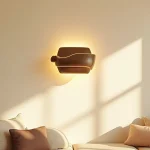When it comes to constructing a long-lasting deck in the UK, the preferred choice of material is paramount. The United Kingdom sees a varied climate, with everything from sweltering summers to bitterly cold winters. Rainfall can be heavy, particularly in the autumn and winter months, in which decking is often subjected to harsh conditions. Due to this, the wood used for decking needs to be resilient, durable, and capable of withstanding these weather extremes without compromise to the structure or aesthetics. This article will delve into the most suitable types of wood for deck building in the UK, their properties, benefits and practical use.
Hardwood Decking: A Long-Lasting, Durable Option
Hardwoods are renowned for their exceptional durability and resistance to weather conditions, making them a popular choice for decking in the UK. They are high-density woods, which, along with their natural oils, make them resistant to rot and insect damage. Two of the most common hardwoods used for decking are teak and ipe.
Avez-vous vu cela : Top insulated lunch pouches to keep your meals fresh
Teak is known for its incredible durability and resistance to water, thanks to its natural oils and rubber content. This makes it particularly suitable for the UK’s damp climate. However, teak is often more expensive than other hardwoods due to its scarcity and the difficulty of working with it.
Ipe, on the other hand, is another hardwood option that also boasts impressive durability and resistance to rot and insects. It is typically cheaper than teak, but still offers a high-quality finish and a lifespan of up to 50 years if properly maintained.
A découvrir également : What are the precise steps to install a backyard pond in a UK suburban home?
While hardwoods are an excellent choice for durability, it is essential to remember that they require regular maintenance to maintain their colour and prevent cracking.
Softwood Decking: A Cost-Effective, Sustainable Choice
Softwood decking is another alternative for those seeking a balance between cost-effectiveness and durability. Softwoods such as pine, spruce, and cedar are usually cheaper than hardwoods, but they still offer a reasonable lifespan if treated properly.
Pine is the most common softwood used for decking in the UK. It’s a lightweight and easy-to-work-with material. However, untreated pine is susceptible to rot and insect damage, so it requires treatment with preservatives to increase its lifespan.
Spruce is another option that, while less commonly used than pine, is still worth considering due to its strength and resistance to decay. It is also a cost-effective option.
Cedar is a standout option when it comes to softwoods. Its natural resistance to moisture, decay and insect damage makes it highly suitable for the UK’s climate, and it offers a distinctive reddish colour that can enhance the aesthetic appeal of a deck.
It is worth noting that while softwoods are more affordable and easier to work with than hardwoods, they do require more regular maintenance and have a shorter lifespan.
Composite Decking: A Modern, Low-Maintenance Alternative
For those who value low maintenance and eco-friendliness, composite decking is an excellent option. Composite decking is made from a blend of wood fibres and recycled plastics, making it a more sustainable choice.
Apart from its eco-friendly credentials, composite decking is also highly durable. It is resistant to rot, doesn’t warp or splinter, and requires minimal maintenance. All these properties make it a strong contender for decking in the UK’s variable climate.
The drawback of composite decking is that it doesn’t have the authentic, natural look of real wood. However, advances in manufacturing techniques have led to composite materials that closely mimic the appearance of real wood, making this a less significant issue than in the past.
Thermally Modified Wood Decking: The Heat-Treated Solution
Thermally modified wood decking is a newer option on the market that involves heat-treating softwoods to improve their resistance to decay and insects. Heat treatment also enhances the wood’s stability, reducing the risk of warping and cracking.
Popular choices for thermally modified wood include ash and pine. After treatment, these woods have a lifespan similar to hardwoods, making them a viable alternative for decking in the UK.
One of the main draws of thermally modified wood is that it’s chemical-free, making it a safer choice for households with children or pets. However, it tends to be more expensive than untreated softwoods and may grey over time if not treated with a UV-protective finish.
Pressure-Treated Wood: An Affordable, Resilient Choice
Pressure-treated wood is another popular choice for decking in the UK. This type of wood is treated with chemicals to make it resistant to rot, decay and termites, making it well suited to the UK’s climate.
Pressure-treated pine is the most common variety and offers an affordable yet durable option. One of the main advantages of this wood type is its availability and affordability. However, the chemicals used in the treatment process can be a concern for some homeowners, especially those with children or pets.
When choosing the best wood type for your decking project, it’s crucial to balance factors such as durability, maintenance requirements, cost, and aesthetics. Consulting with a decking professional can be a helpful step in making an informed decision.
Deck Maintenance: Ensuring Your Deck’s Lifespan
To ensure your deck endures the harsh weather conditions of the UK, routine maintenance is key. This not only extends the lifespan of the wood but also preserves its aesthetic appeal. Each type of wood requires different care and attention.
Hardwood decking like teak and ipe, requires regular oiling to maintain its natural colour and prevent cracking. Oiling should ideally be done annually, preferably during dry weather conditions. It is also recommended to clean hardwood decks with a soft broom and mild soapy water to remove any dirt or debris.
Softwood decking, on the other hand, entails a more rigorous maintenance routine. Apart from regular cleaning, softwoods require frequent treatment with preservatives to protect against rot and insect damage. It’s advisable to reapply these treatments every two to three years.
Composite decking requires the least maintenance. A simple wash with soapy water is usually sufficient to keep it clean. However, if stains or mould start to appear, a composite deck cleaner can be used.
Thermally modified wood decking and pressure-treated wood require minimal maintenance. These types of wood are resistant to decay and insects due to the processes they undergo. However, to maintain their colour, it may need a UV-protective finish applied periodically.
In Conclusion: Choosing the Right Decking Material for Your UK Home
In choosing the right material for your decking project, consider the UK’s variable climate, the maintenance involved and your budget. Hardwoods offer exceptional durability and a rich, natural look, but require regular maintenance and can be pricier. Softwoods are more affordable and easier to work with, but they require more regular maintenance and have a shorter lifespan. Composite decking is an eco-friendly, low maintenance and durable material, albeit lacking the natural look of real wood. Thermally modified wood and pressure-treated wood are both resilient alternatives with enhanced resistance to decay and insects, but may require a UV-protective finish to maintain their colour.
Each deck material has its strengths and drawbacks, and the best choice will depend on your specific needs, taste, and budget. Always consult with a decking professional to ensure you make an informed decision that will provide you with a deck that not only looks great but can withstand the UK’s variable climate for years to come. With the right choice and maintenance, you can enjoy a durable and inviting outdoor space in your home.






